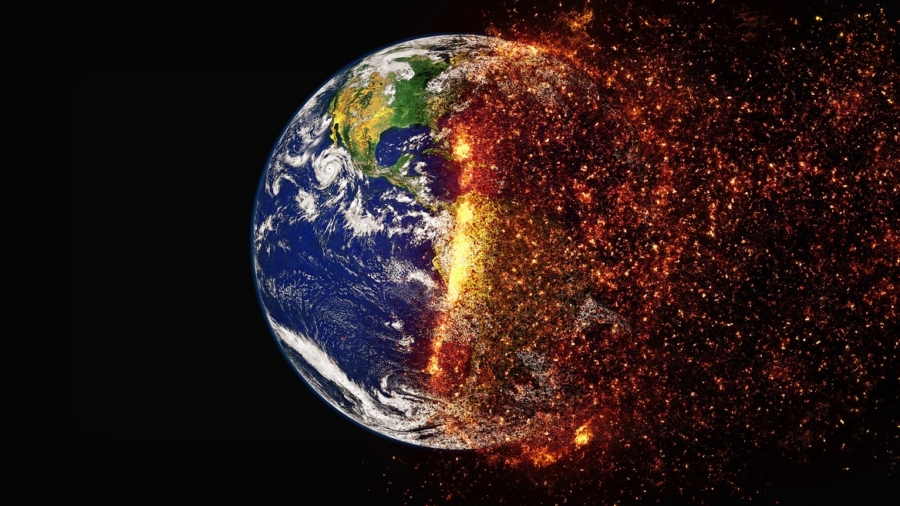With the impacts of climate change already being confronted today and the catastrophes expected in the not-too-distant future, one would think that daily massive demonstrations and a restructuring of everyday life would be taking place all around the world. Is the threat of human extinction not a large enough impetus to snap the masses into action? The moral plague that is capitalism has paved the road to our extinction. The question now, and arguably the most important of our time, is whether or not we will address the ill-effects and effectively rid the world of the environmental destruction that capitalism has cast upon our world.
Heavy-use of fossil fuels, industrial agriculture, and lifestyle choices are all aspects of the system that require analysis as we work towards minimizing humans’ contributions to climate change. One must note that these aspects are products of capitalism; they have caused the amount of degradation that they have due to the way in which world powers have adopted this exploitative system. Societies around the world must begin transitioning to renewable energy, switching to a farming system that is based upon agroecology, and leading more humble, sustainable lives. Addressing all of these aspects are necessary and commendable starting points but stopping there results in addressing only part of the issue at hand. We must interrogate the entire system that has led to this; we must interrogate capitalism.
Central to capitalism is individualism; the value of one’s self over (and especially at the expense of) the well-being of society and its people. A true democracy is necessary to effectively challenge corporations’ contributions to climate change. Democracy requires strong, organized communities, something that the toxic value of individualism directly threatens. Under capitalism, it is not the people who have the power, but the corporations and the 1%. Individualism has served as a distraction in the way that it has prevented the masses from joining together to protect the Earth and its people from exploitation. We must abandon individualism and work towards rebuilding our communities so that we are better equipped to challenge corporations that continue to lead us down the path of extinction.
Another value central to capitalism – and equally as dangerous as individualism – is that of “competition” or Social Darwinism, the theory that fueled individualism. This theory provides people with reason to view the Earth as something that must be conquered. Today we often hear political commentators and guests on corporate news explain the importance of competition and its apparent link to innovation in society. According to these folks, humans are, naturally, always competing with one another. This view is very much anti-human, as humans require one another to survive. In order to be a “winner” in this competition, you must exploit the Earth, you must over-consume, you must actively work towards not cooperating with others and the world around you. In order to “survive” in this “competition” of life, you must produce not what you need, not what your community needs, but as much as you can until all of your resources are used. You must not consume what you need, rather you must consume until you no longer have the resources to do so. It is an odious cycle fueling our extinction.
These values are at the core of capitalism, and the institutions which our society revolves around are founded upon capitalism and its ideals. It is because of this soul-crushing system, and of course our impending extinction, that we must urgently come together and radically restructure society. We cannot rely on the workings of capitalism to save us from this threat, nor can we only address practices that are simply a product of this system. We must actively challenge all that we have been conditioned to believe and accept. We must recreate strong, unified communities. The masses must recognize their collective power and work together to challenge the few who are leading us to the end of human civilization.
This article was originally published on 3 October 2018.
Similar Read: A Center-Right Response to Climate Change


 6 claps
6 claps